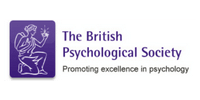CBT Therapy in London
CBT is a talking therapy that can help you manage challenges by changing the way you think and behave.
It is commonly used to treat anxiety and depression as well as other mental and physical health problems and is the leading evidence-based psychological therapy.
CBT Therapy is based on the idea that our thoughts, feelings and behaviours are all interconnected, and that negative thoughts and unhelpful behaviours can trap us in a vicious cycle.
CBT aims to help us break out of this cycle by identifying and challenging negative thoughts, and learning new, more positive ways of thinking and behaving.

How can CBT therapy help?
CBT can help you to deal with overwhelming problems in a more positive way by breaking them down into smaller parts, enabling you to tackle them one step at a time.
By learning how thoughts and behaviours are connected, and how they affect each other, CBT can help you feel better about yourself and your situation.
CBT can also be used to treat physical health problems, such as chronic pain, by helping you to manage your symptoms and cope with the pain.
What can CBT help with?
CBT can be used to treat a wide range of mental and physical health problems, including:
Anxiety disorders:
such as panic disorder, social anxiety and phobias
Depression:
including low mood and bipolar disorder
Eating disorders:
such as anorexia, bulimia and binge-eating
Obsessive-Compulsive Disorder (OCD):
such as obsessive cleaning
Post Traumatic Stress Disorder (PTSD):
such as in victims of abuse or road traffic accidents
Sleep problems:
such as insomnia and nightmares
Drug and alcohol addiction:
including Nicotine and gambling
Chronic pain and medical conditions:
such as fibromyalgia, irritable bowel syndrome (IBS), asthma, tinnitus and chronic fatigue syndrome (CFS).
CBT is also used to help people with long-term health conditions, such as diabetes and heart disease, by helping them cope better with the symptoms.
CBT can also be used to help manage stress, low self-esteem, relationship difficulties, and work-related problems.
Does CBT have any side effects?
Because CBT focuses on your current thoughts, behaviours and emotions, there are generally no side effects associated with the therapy. However, some people may experience mild discomfort or anxiety during the course of treatment due to the nature of discussing difficult thoughts and feelings.
Overall, CBT is an effective approach for treating a wide range of mental and physical health problems and can be used either in individual or group settings. If you think CBT could help you, speak to your us at Alinea Psychologies, your GP or a qualified mental health professional to find out more.
How does CBT work?
CBT helps people to manage their problems and symptoms by targeting negative thoughts, emotions, and behaviours. It is based on the idea that all of these are interconnected and can trap us in a vicious cycle. By identifying and challenging negative thoughts, behaviours, and emotions, CBT helps people to break out of this cycle and feel better about themselves and their situation.
What happens in CBT sessions
CBT is usually carried out through a series of weekly sessions lasting around 50 minutes each.
During these sessions, you will work with your therapist to identify negative patterns of thought and behaviour, setting goals and designing experiments to change them.
In addition to talking through your problems, you may be asked to identify some practical strategies and complete some practical exercises, such as keeping a diary or doing a self-help book.
If CBT is successful at treating anxiety or depression, it’s usually recommended for around 12-16 weeks. However, it can be a longer-term treatment that continues to help you manage your problems and improve your quality of life.
If you think CBT might be right for you, get in touch and we can discuss this in more detail.
How effective is CBT Therapy?
CBT is one of the most effective treatments for mental health problem. It can be as effective as medication in treating some disorders, and it has been found to be more effective than other talking therapies, such as counselling.
CBT can also help to manage many physical health problems, such as chronic pain, fatigue and IBS.
Getting Support: Book CBT Therapy in London
CBT is provided by specially trained therapists, who work with individual patients or groups of patients to help them understand their problems, identify unhelpful patterns of thinking and behaviour, and find new ways to cope.
If you are interested in booking CBT therapy in London for your mental health issue or challenge in life, talk to your doctor or therapist about the options available to you. Whatever your circumstances, there is likely to be a form of CBT that can help you find relief from your symptoms and start living a happier, more fulfilling life.
That was just a brief overview of what cognitive behavioural therapy and treatment is and how it can help you manage your mental health problems. Here at Alinea Psychologies in London, we can help you to learn more about CBT treatment online and find resources to help you get started with the therapy. Book Cognitive Behavioural Therapy Online at Alinea Psychologies.
If you are struggling with an anxiety disorder, it is important to seek professional help. There are many resources available to help you get the treatment you need. Book Cognitive Behavioural Therapy Online!







